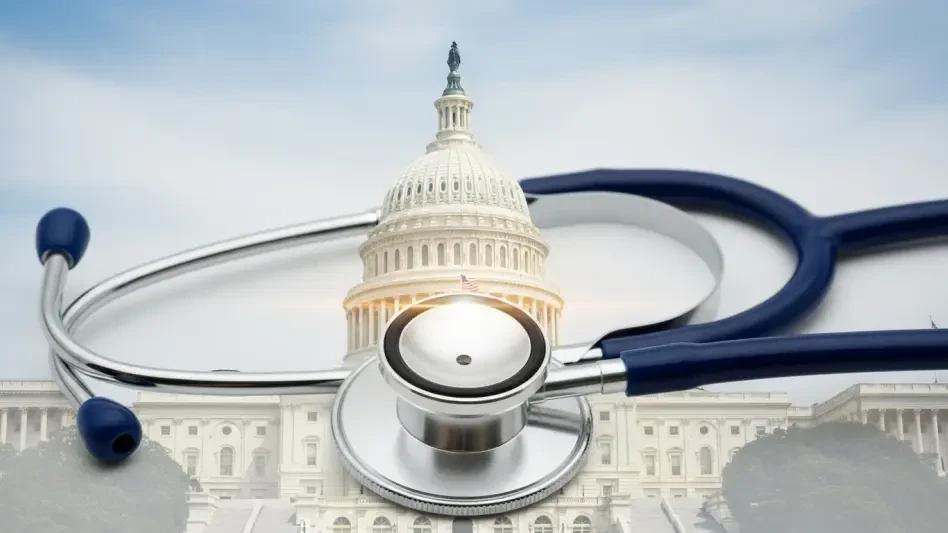Understanding the Global Health Landscape
The global health landscape today stands at a critical juncture, with interconnected systems facing unprecedented challenges due to political and economic shifts that threaten progress. Health crises, such as the ongoing battle against HIV/AIDS, do not respect borders, requiring robust international collaboration to ensure equitable access to prevention and treatment. Organizations like the World Health Organization (WHO), alongside key US agencies such as USAID and the Centers for Disease Control and Prevention (CDC), play pivotal roles in steering these efforts through funding, policy, and technical support.
A significant portion of global health initiatives hinges on contributions from major players like the United States, which has historically led programs such as the President’s Emergency Plan for AIDS Relief (PEPFAR). This initiative alone has transformed outcomes in regions like sub-Saharan Africa by providing life-saving antiretroviral treatments and prevention strategies. The reliance on US funding underscores how political decisions in one nation can ripple across continents, affecting health equity and the ability to respond to pandemics or emerging diseases.
Beyond funding, policy decisions shape the direction of research and implementation, often determining whether resources reach the most vulnerable populations. The interconnected nature of these efforts means that disruptions in one area, such as a halt in aid, can jeopardize progress elsewhere, amplifying disparities. As global health remains a shared responsibility, the stakes of maintaining consistent support and cooperation have never been higher.
Effects of the US Government Shutdown on Global Health
Disruptions to Funding and International Aid
As the US government shutdown enters its second week, the immediate impact on global health funding has become alarmingly clear. Critical programs that depend on American financial support, including PEPFAR, face severe uncertainty as budgets remain unapproved and disbursements are delayed. This paralysis threatens to halt ongoing projects, particularly in regions heavily reliant on US aid for HIV treatment and prevention, with sub-Saharan Africa standing to lose the most.
Reports from various international outlets highlight the scale of this risk, noting that potential cuts could dismantle years of progress in building health infrastructure. The interruption of foreign aid not only affects medication supplies but also stalls training programs for healthcare workers and community outreach efforts. Without swift resolution, the funding gap could lead to a resurgence of preventable diseases, undermining global health security.
The uncertainty also breeds hesitation among other donors, who may question the reliability of partnerships with US-led initiatives. This cascading effect could reduce overall contributions to international health programs, creating a vacuum that smaller economies or organizations struggle to fill. The situation serves as a stark reminder of how domestic political gridlock can have far-reaching consequences beyond national borders.
Broader Implications for Health Equity
The reduction in US support during the shutdown extends beyond immediate funding, creating ripple effects that delay program implementation and limit access to vital resources. Essential services, such as HIV testing and maternal health programs, face interruptions, disproportionately affecting marginalized communities that already grapple with systemic barriers. These delays can exacerbate existing inequalities, pushing health equity further out of reach.
Studies published in prominent journals project alarming outcomes if funding gaps persist, including a potential rise in HIV infections due to disrupted prevention efforts. Such data underscores the fragility of global health gains when major contributors falter, as even short-term interruptions can lead to long-term setbacks. The loss of momentum in addressing diseases like HIV/AIDS risks reversing decades of progress, particularly in low-income regions.
Over the long term, diminished US leadership could weaken the global resolve to tackle health disparities, as other nations or entities may lack the capacity or political will to step in. This erosion of commitment threatens to fragment international efforts, leaving critical gaps in care and surveillance. The shutdown, therefore, is not just a temporary hiccup but a potential turning point for how health equity is prioritized on a worldwide scale.
Challenges Posed by Political Instability and Transparency Issues
Political instability in the US adds another layer of complexity to global health efforts, with actions such as the quiet removal of HIV and STI prevention content from the CDC website raising serious concerns. This unexplained deletion, criticized by advocacy groups, signals a troubling trend of reduced transparency in public health communication. Such moves undermine confidence in US-led health initiatives at a time when trust is paramount.
The erosion of reliable information from authoritative sources hampers the ability of global partners to align strategies and educate communities effectively. Condemnations from organizations highlight how political interference can distort scientific messaging, creating fertile ground for misinformation to spread. This lack of clarity not only affects domestic populations but also weakens international trust in collaborative health programs.
To counter these challenges, advocacy for scientific integrity must intensify, ensuring that health data remains accessible and untainted by political agendas. Strengthening international collaboration can also help fill transparency gaps, with global bodies stepping up to provide consistent guidance. These strategies are essential to maintain momentum in health initiatives despite domestic uncertainties in key contributor nations.
Regulatory and Research Responses Amidst Uncertainty
Amid political setbacks, positive strides in regulatory innovation offer a glimmer of hope for global health progress. The WHO’s rapid prequalification of lenacapavir for HIV pre-exposure prophylaxis (PrEP), completed in just 36 days, marks a historic achievement in accelerating access to life-saving interventions. This swift action demonstrates the potential for regulatory bodies to adapt and prioritize urgent health needs even under challenging circumstances.
Equally significant is the commitment to sustained research, exemplified by the National Institute of Allergy and Infectious Diseases (NIAID) initiating a renewal process for HIV clinical research networks, including ACTG, IMPAACT, HPTN, and HVTN, spanning from the current year to 2034. This effort, bolstered by public consultation, ensures that research priorities remain focused on evidence-based solutions, maintaining a pipeline of innovation despite funding pressures.
Regulatory agility and inclusive dialogue are crucial to keeping global health advancements on track. By streamlining approval processes and fostering stakeholder input, the international community can mitigate some of the disruptions caused by political and financial uncertainties. These responses highlight a resilience that, if nurtured, could counterbalance the broader challenges facing health initiatives today.
Future Outlook for Global Health Initiatives
Looking ahead, the trajectory of global health initiatives appears fraught with both risk and opportunity, heavily influenced by US political instability. Scenarios of reduced aid or redirected priorities could severely hamper programs targeting HIV/AIDS and other critical areas, forcing a reallocation of already scarce resources. Such shifts may prioritize short-term political gains over long-term health outcomes, with devastating effects on vulnerable populations.
Emerging risks further complicate the landscape, including behavioral trends like blood-sharing practices that drive HIV surges, alongside systemic issues such as inadequate funding models. These challenges, compounded by potential US aid cuts, necessitate urgent adaptation by international health bodies to identify alternative support mechanisms. The complexity of these threats calls for a proactive stance to prevent further erosion of health gains.
Yet, opportunities for progress remain through regulatory innovation, sustained investment in research, and strengthened partnerships. By leveraging agile frameworks like WHO’s expedited processes and fostering collaboration among nations, the global health community can offset funding gaps. Building on these foundations offers a pathway to resilience, ensuring that advancements continue even in an era of uncertainty.
Conclusion and Recommendations
Reflecting on the insights gathered, the global health landscape faces a precarious balance of setbacks and progress during this period of US political turmoil. The shutdown’s disruption to funding and the erosion of transparency pose significant threats to international health programs, while milestones like lenacapavir’s prequalification showcase the power of innovation.
Moving forward, stakeholders are urged to advocate for stable funding mechanisms that shield critical initiatives from domestic political fluctuations. Prioritizing transparency in public health communication emerges as a vital step to rebuild trust and counter misinformation. Fostering deeper global collaboration stands out as a necessary strategy to bridge gaps left by reduced US contributions.
Ultimately, resilience and innovation are identified as key drivers to navigate the uncertain road ahead. By investing in adaptable systems and maintaining a commitment to equity, the international community can safeguard health initiatives against future disruptions. These actionable steps provide a roadmap for sustaining progress in addressing some of humanity’s most pressing health challenges.









